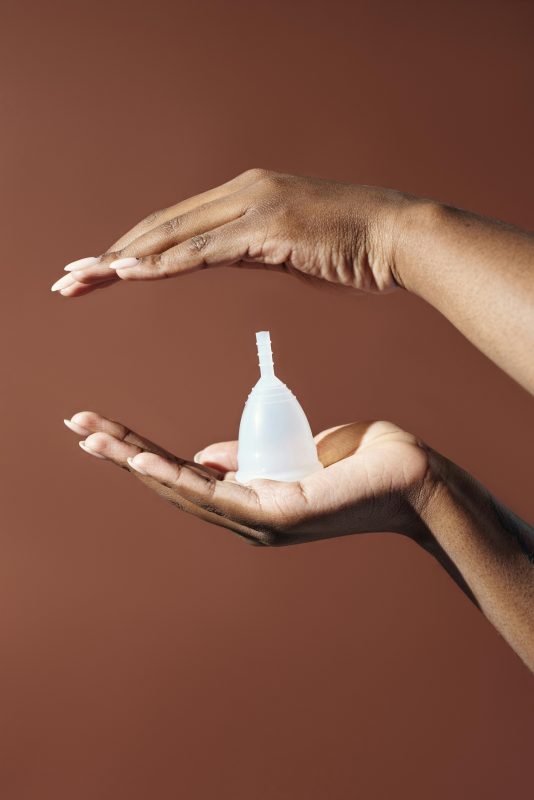As we embrace Plastic Free July, there’s one area of our lives that deserves urgent attention but rarely gets talked about openly: period care. While we’re busy swapping plastic straws for bamboo alternatives and carrying reusable coffee cups, millions of women are unknowingly contributing to an environmental crisis through their monthly routine—and potentially compromising their health in the process.
It’s time we had an honest conversation about period products, because the statistics might shock you more than you think.
The Shocking Reality of Period Waste
Here’s a number that will make you pause: the average woman uses over 11,000 disposable menstrual products in her lifetime. That’s enough to fill a small room! To put this in perspective, if you lined up all the tampons and pads one woman uses in her lifetime, they would stretch for over 5 kilometres.
In Australia alone, we dispose of approximately 5.8 billion period products annually. These products, made primarily of plastic and synthetic materials, can take up to 800 years to decompose. That means the first tampon ever thrown away is still sitting in a landfill somewhere, and will continue to exist long after we’re gone.
But the environmental impact extends beyond landfills. Period products are among the most common items found in ocean cleanups, with applicators and wrappers washing up on beaches worldwide. Marine animals mistake these plastic fragments for food, leading to injury and death in countless sea creatures.
The Hidden Health Impact
While the environmental statistics are staggering, there’s another side to this story that affects you directly: your health. Many conventional period products contain a cocktail of chemicals and synthetic materials that can disrupt your body’s natural balance.
Most tampons and pads contain plastics, synthetic fragrances, bleaching agents, and other chemicals that can irritate sensitive skin and potentially interfere with your body’s natural pH balance. Some studies suggest these chemicals may even disrupt hormonal function, creating a cycle where the products meant to manage your period might actually be affecting your menstrual health.
Additionally, tampons absorb not just menstrual blood, but also your body’s natural moisture, which can lead to dryness and irritation. They can also harbour bacteria if left in too long, increasing the risk of infections.
The Game-Changing Alternative: Menstrual Discs
Enter the menstrual disc—a revolutionary product that’s transforming how women experience their periods while dramatically reducing environmental impact. Made from medical-grade silicone, these innovative products offer a completely different approach to period care.
Unlike tampons that absorb, menstrual discs collect menstrual fluid without disrupting your body’s natural moisture levels. They’re positioned differently in the body, sitting in the vaginal fornix rather than the canal, making them virtually undetectable during wear. Many users report they can’t even feel them once properly inserted.
The benefits extend far beyond comfort. A single menstrual disc can last for years, replacing thousands of disposable products. They can be worn for up to 12 hours, are leak-resistant when properly positioned, and many users report reduced cramping compared to traditional products.
Companies like The Khush Place are leading the charge in Australia, offering high-quality menstrual discs made from 100% medical-grade silicone. Their products come with comprehensive guides and support to help women make the transition confidently.

More Plastic-Free Period Care Swaps
The revolution doesn’t stop at menstrual discs. Consider these additional swaps for a completely plastic-free period care routine:
- Reusable Period Underwear: These innovative garments contain built-in absorbent layers that can replace pads entirely for light to medium flow days.
- Organic Cotton Products: When disposables are necessary, choose organic cotton options without plastic applicators or synthetic materials.
- Sterilizing Solutions: Instead of disposable wipes, invest in natural sterilizing equipment that uses steam to safely clean reusable products.
- Natural Pain Relief: Replace plastic-packaged pain relievers with heat therapy, herbal teas, or natural supplements that address period pain at its source.
Making the Switch: What to Expect
Transitioning to plastic-free period care isn’t just about the environment—it’s about discovering a more comfortable, cost-effective, and health-conscious way to manage your cycle. Most women who make the switch report feeling more in tune with their bodies and experiencing less irritation and discomfort.
The initial investment might seem higher than buying a box of tampons, but the long-term savings are significant. A quality menstrual disc can save you hundreds of dollars over its lifetime while eliminating thousands of disposable products from your routine.
A Step Towards Better Health and Planet
This Plastic Free July, consider making a change that benefits both your body and the environment. Every woman who switches to reusable period care prevents approximately 200 disposable products from entering landfills annually—and that’s just one person making one change.
Sustainable period care isn’t just about reducing waste; it’s about taking control of your health, understanding your body better, and making choices that align with your values. It’s about refusing to accept that managing your period should come at the expense of the planet or your wellbeing.
Your period is a natural part of life—shouldn’t your period care be natural too?
This guest post is written by Heidi Andrews, the Co-founder of The Khush Place. Ready to make the switch to sustainable period care? Explore eco-friendly options at The Khush Place and discover how small changes can make a big impact. For more sustainable living tips, sign up for our newsletter and join our community of conscious consumers.
